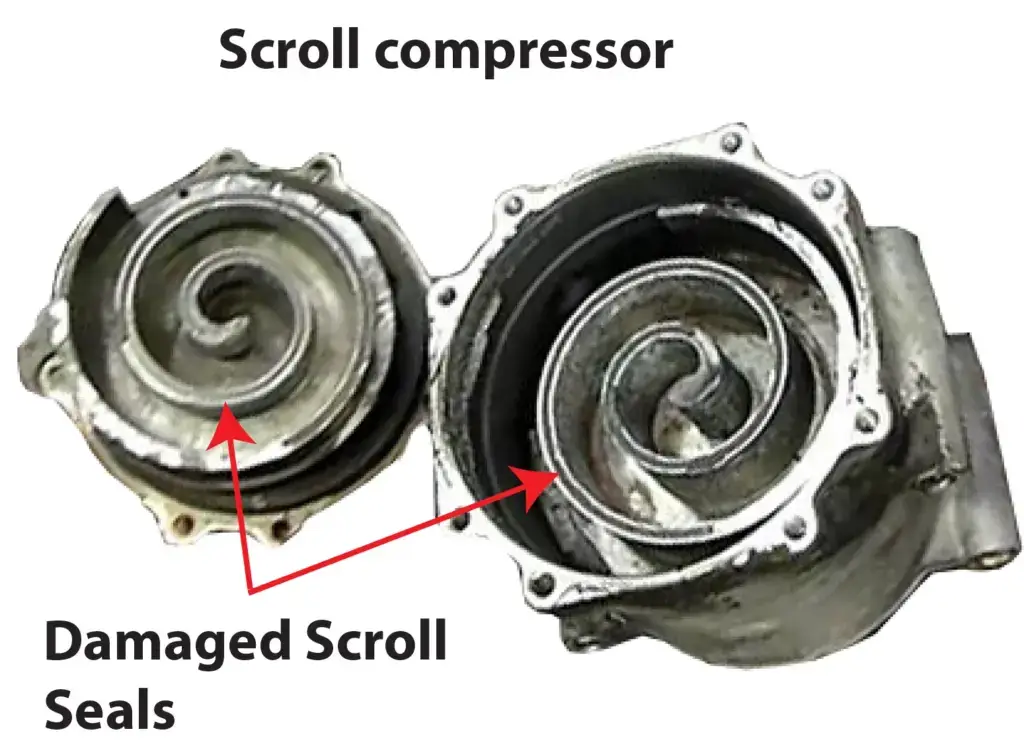AC compressor failure: The most common causes
Learn the 3 most common causes of AC compressor failure
DIYers often create their own problems when they do AC work. Here are the 3 most common causes of AC compressor failure and why they’re all caused by operator error
Compressor failure cause #1 — lack of lubrication due to low refrigerant charge
All AC systems rely on the refrigerant to carry refrigerant oil through the system to lubricate the compressor piston/scroll seals. When an AC system develops a leak and loses refrigerant, it also loses oil. From that point on, the system is not only low on refrigerant, it’s also low on oil. Running your AC system when it’s low on refrigerant is the single best way to destroy your AC compressor.
The lack of oil wears the Teflon seals and cylinder, scrolls, or vanes used in the compressor. The wear creates fine metallic particles that accumulate throughout the system, clogging the filter in the orifice tube or the port in an expansion valve.
When the system fails, you not only have to replace the compressor but also the expansion devices and the condenser, along with a complete flush of the hoses and the evaporator. It’s critical to remove all the debris that spread throughout the system
Compressor failure cause #2 — air and moisture in the system degrades the oil
When a refrigerant leak occurs, air and moisture enter the system. Air and moisture react with the refrigerant oil, causing it to oxidize and form acids that attack the system’s metals. The now-degraded oil can’t lubricate properly, resulting in accelerated compressor wear. The wear debris, acid, moisture, and oil combine to form a slimy black coating throughout the AC system, referred to as “black death.”
Once the system is opened for repair, the slimy black film is everywhere. Fixing a black death system requires a new compressor, condenser, receiver/dryer, and a complete flush of all AC lines and the evaporator.
Compressor failure #3 — refrigerant overcharge
When the system is overcharged, the compressor has to work harder to compress the refrigerant. That wears out the compressor seals much faster and stresses the compressor crankshaft and swash plate.
©, 2023 Rick Muscoplat
Posted on by Rick Muscoplat
